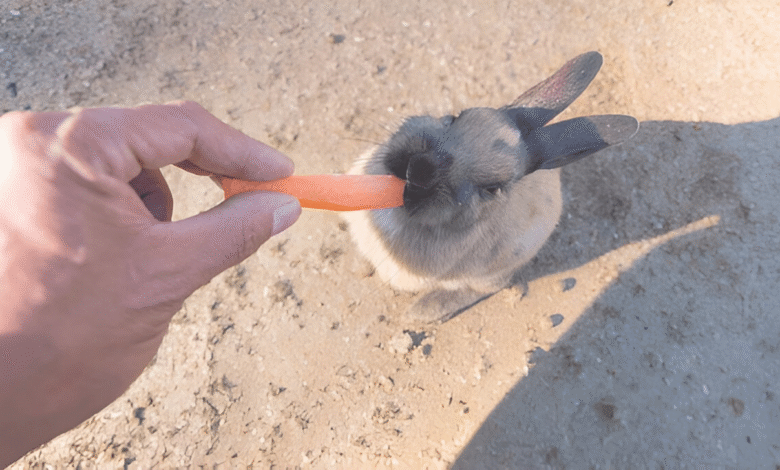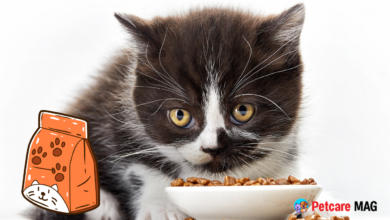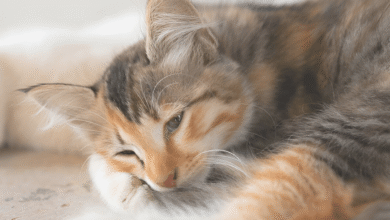
What to Feed Your Rabbit: A Complete Diet Plan
Feed Your Rabbit diet plan explained Discover the perfect balance of hay, veggies & pellets for a healthy, happy bunny. Expert feeding guide inside.
Feed Your Rabbit the right diet is essential for its health, happiness, and longevity. Rabbits have a delicate digestive system that requires a high-fiber, low-sugar diet to function properly. Without proper nutrition, they can develop serious health issues like gastrointestinal stasis, dental problems, and obesity. This guide will provide a detailed Feed Your Rabbit diet plan, covering the best foods, portion sizes, and feeding routines to keep your furry friend thriving.
Understanding what to feed your rabbit can seem overwhelming, but it doesn’t have to be. A balanced rabbit diet consists of unlimited hay, fresh vegetables, controlled pellets, and occasional treats. By following this structured approach, you can prevent common health problems, support digestion, and ensure Feed Your Rabbit stays active and content. Whether you’re a new or experienced Feed Your Rabbit owner.
What to Feed Your Rabbit
The Importance of Hay in a Rabbit’s Diet
Hay is the most critical component of Feed Your Rabbit diet, making up about 80% of their daily food intake. It provides essential fiber, which aids digestion and prevents gastrointestinal stasis, a life-threatening condition. The constant chewing also helps wear down their continuously growing teeth, preventing dental problems. Timothy hay, orchard grass, and meadow hay are excellent choices for adult rabbits, while alfalfa hay is suitable for young bunnies due to its higher protein and calcium content. Always ensure the hay is fresh, dry, and free from mold. Offering unlimited access to hay encourages natural foraging behavior and keeps your rabbit mentally stimulated.
Fresh Vegetables for Optimal Nutrition
Fresh vegetables should make up about 10-15% of Feed Your Rabbit daily diet. Leafy greens like romaine lettuce, kale, and cilantro are packed with vitamins and minerals. Introduce new veggies gradually to avoid digestive upset, and always wash them thoroughly to remove pesticides. Avoid feeding high-oxalate greens like spinach and parsley too frequently, as they can lead to kidney stones. Carrots, while popular, should be given sparingly due to their high sugar content. A variety of at least three different vegetables per day ensures a balanced intake of nutrients.
Pellets
High-quality rabbit pellets can provide additional nutrients but should only constitute 5% of their diet. Look for pellets with at least 18% fiber and no added seeds, nuts, or colorful bits, which can cause obesity. Adult rabbits should be limited to ¼ cup per 5 pounds of body weight daily. Young rabbits (under 7 months) can have unlimited alfalfa-based pellets, but adults should transition to timothy-based pellets to avoid excess calcium. Always check the expiration date and store pellets in a cool, dry place to maintain freshness.
Safe Fruits and Occasional Treats
Fruits should be given as occasional treats due to their high sugar content. Small portions of apples, bananas, or berries can be offered 1-2 times per week. Remove seeds and pits, as they can be toxic. Avoid sugary commercial treats, which can lead to weight gain and digestive issues. Herbs like mint and basil can also be given in moderation as healthy alternatives. Always monitor your rabbit’s weight and adjust treats accordingly to prevent obesity-related health problems.
The Role of Fresh Water in a Rabbit’s Diet
Clean, fresh water must be available at all times. Rabbits can drink from a bowl or a bottle, but bowls are often preferred as they allow for a more natural drinking position. Change the water daily and clean the container regularly to prevent Bacterial growth. Dehydration can lead to serious health issues, so ensure your rabbit is drinking enough, especially in hot weather. If you notice a decrease in water intake, consult a veterinarian immediately.
Foods to Avoid in a Rabbit’s Diet
Certain foods are toxic to rabbits and should never be fed. These include chocolate, avocado, onions, and iceberg lettuce (which lacks nutritional value). Starchy foods like bread, pasta, and cereals can disrupt their digestive system and lead to obesity. High-calcium vegetables, such as spinach, should be given sparingly to prevent bladder stones. Always research new foods before introducing them to your rabbit’s diet to ensure safety.
Feeding Schedule and Portion Control
Establishing a consistent feeding schedule helps regulate your rabbit’s digestion. Offer unlimited hay at all times, fresh vegetables once or twice daily, and a measured amount of pellets. Treats should be given sparingly, ideally as a training reward. Monitor your rabbit’s weight and adjust portions if necessary. Overfeeding pellets or treats can lead to obesity, while insufficient hay can cause digestive problems. Regular vet check-ups will help ensure your rabbit maintains a healthy weight.
Special Dietary Needs for Young and Senior Rabbits
Baby rabbits (kits) require more protein and calcium, which alfalfa hay and pellets provide. As they grow, gradually transition them to timothy hay and adult pellets. Senior rabbits may need softer hay or chopped vegetables if they have dental issues. Older rabbits often benefit from additional hydration, so wet leafy greens can help. Always consult a vet for personalized dietary advice based on your rabbit’s age and health condition.
Signs of a Healthy vs. Unhealthy Diet
A healthy rabbit will have bright eyes, a shiny coat, and consistent fecal pellets. If their diet is unbalanced, they may experience diarrhea, weight loss, or lethargy. Changes in eating habits should be addressed promptly to prevent serious health complications. Regularly check their teeth for overgrowth, which can result from insufficient hay consumption. A well-balanced diet not only supports physical health but also improves their overall mood and activity levels.
Transitioning to a New Diet Safely
If you need to change your rabbit’s diet, do so gradually over 7-10 days to avoid digestive upset. Start by mixing small amounts of the new food with their current one, increasing the ratio slowly. Monitor their stool and appetite closely during the transition. Sudden changes can lead to GI stasis, a dangerous condition where the digestive system slows down or stops. If your rabbit stops eating or producing droppings, seek veterinary care immediately.
Read More: The Ultimate Guide to Pet Vaccination Schedules
Conclusion
Feed Your Rabbit a proper diet is one of the most important responsibilities of pet ownership. By providing unlimited hay, fresh vegetables, controlled pellets, and limited treats, you ensure Feed Your Rabbit gets the essential nutrients for optimal health. A well-balanced Feed Your Rabbit diet supports digestion, prevents obesity, and maintains dental health, helping your furry companion live a long and happy life.
Remember that every Feed Your Rabbit is unique, and dietary needs may vary based on age, weight, and health conditions. Always monitor your pet’s eating habits and consult a veterinarian if you notice any changes. With the right feeding plan, your rabbit will thrive, staying energetic and healthy for years to come. Consistency and care in their diet make all the difference in their overall well-being.
FAQs
What should be the main component of my rabbit’s diet?
The foundation of your rabbit’s diet should be unlimited high-quality hay, which provides essential fiber for digestion and dental health.
How often should I Feed Your Rabbit vegetables?
Offer 1-2 cups of fresh leafy greens daily per 5 pounds of body weight, introducing new veggies gradually to avoid digestive upset.
Are pellets necessary for adult rabbits?
Pellets should be limited to ¼ cup per 5 pounds daily as a supplement to hay and greens, not a primary food source.
Can rabbits eat fruit regularly?
Fruits should only be given 1-2 times weekly in small amounts due to high sugar content, which can cause obesity and digestive issues.
What foods are dangerous for rabbits?
Avoid avocado, chocolate, onions, iceberg lettuce, and starchy foods, as these can be toxic or cause serious health problems.







